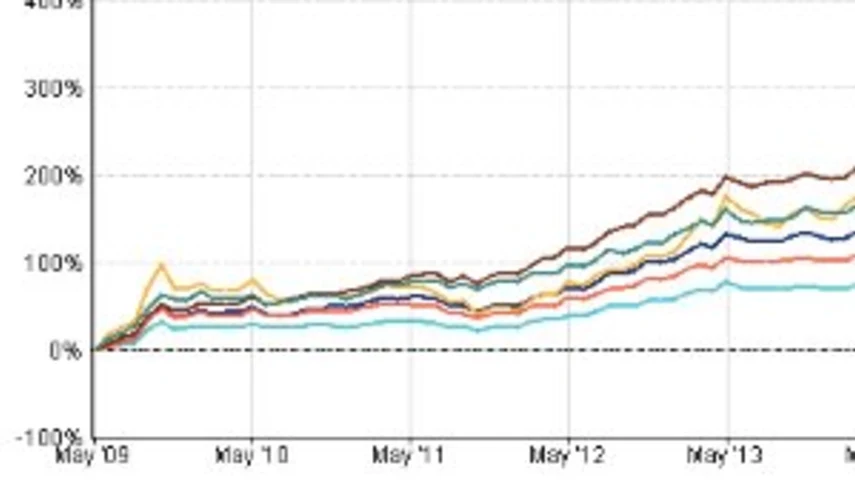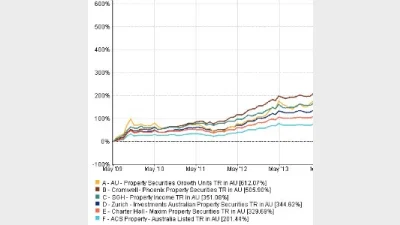Property offering a valuable hedge against equities downturn



As the spectre of a recession sparks fear in equities investors’ hearts, alternative asset classes such as property are looking increasingly attractive as both a hedge against equities downturn and, as data from FE Analytics reveals, strong providers of capital growth in their own right.
Looking at the Australian Listed Property sector’s returns over the last five and 10 years, which are necessarily long periods considering the nature of real estate investments, FE Analytics shows that there are some property funds that not only provide protection and diversification from equities markets, but also deliver stand-out returns.
The Australian Unity Property Securities Growth Units fund was the top performer for the sector across both the five and 10 years to last month’s end, with annualised returns of 19.49 and 21.69 per cent respectively. These results show the strength of Aus Unity’s property investment team more broadly; its Retail Property fund and Diversified Property fund were the winner and runner-up in the Direct and Hybrid Property category at last week’s Money Management Fund Manager of the Year awards.
Charter Hall’s Maxim Property Securities fund was also a stand-out offering across both time periods, with its returns of 15.7 per cent over the 10 years to April’s end and 14.65 over the five years placing it in the top five funds in the Australian Listed Property sector across both periods.
As the chart below shows, over 10 years, the other funds to fill out the top five performer list were Cromwell’s Phoenix Property Securities fund, with returns of 19.74 per cent, SGH’s Property Income trust, with 16.26 per cent, and Zurich’s Australian Property Securities fund, with 16.09 per cent.
An exchange-traded fund (ETF) snuck onto the list for five-year returns, with VanEck’s Australian Property ETF’s returns of 14.17 per cent for the period making it the third-best performer in the sector. Resolution’s Core Plus Property Securities trust and Macquarie’s Property Securities fund gave investors the fourth and fifth highest returns for the sector, with 13.88 and 13.72 per cent respectively.
According to VanEck’s director of investments, Russel Chesler, retail investors could benefit from using property investments to gain diversification, reliable income, and even capital growth (which the above funds certainly provided to investors over the last five and 10 years, at least) as the equities market slows.
“With rising risks around the maturing economic cycle and ongoing trade tensions between the US and China, infrastructure and property provide a hedge against an equity market downturn,” Chesler said.
“Recently, demand has increased as investors consider property and infrastructure as substitutes for historically high-yielding Australian equities given the slowing Australian economy and fears of lower yields ahead coupled with the potential winding back of franking credit refunds.”
Recommended for you
Evidentia’s chief investment strategist Nathan Lim has announced his retirement after a 30-year career.
GQG Partners has marked its fifth consecutive month of outflows as its AI concerns lead to fund underperformance but overall funds under management increased to US$166.1 billion.
Apostle Funds Management is actively pursuing further partnerships in Asia and Europe but finding a suitable manager is a “needle in a haystack”.
Managed account provider Trellia Wealth Partners, formed from the merger between Betashares and InvestSense, has appointed its first managing partner.











